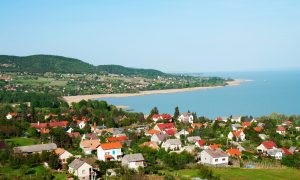With the EuropeanimmigrantsWith the rising tide, Hungary has become an ideal destination for more and more foreigners due to its favorable geographical location, low cost of living and gradually improving immigration policies. From applying for a visa to integrating into the local society, Hungarian immigrant life has its own unique challenges and opportunities. In this article, we will present to you a comprehensive picture of the process from application to adaptation through the real life experience of foreigners in Hungary, which will help you to understand the challenges and opportunities in the process.Immigration to Hungaryof what life would be like.
1. The start of the Hungarian immigration application
For most foreigners, the first step in immigrating to Hungary is to apply for the right visa. There are many types of immigrant visas in Hungary, the common ones being work visa, investment visa, study visa and family reunion visa. Regardless of which visa type is chosen, applicants are required to provide a series of documents, such as a valid passport, proof of financial ability, proof of a clean criminal record, and so on.
For many, the relatively simple immigration process in Hungary is one of the reasons why the country attracts a large number of foreign investors and workers. In particularinvestment immigrationprogram, applicants only need to make a certain amount of investment in Hungary, you can quickly obtain long-term residency and long-term residence status in the EU.
However, while the application process is relatively straightforward, the waiting period for approval can be long, often taking weeks or even months. The anxiety and uncertainty during this period is often the first "hurdle" that many immigrants experience.
2. Adaptation to Hungarian culture and language
The official language of Hungary is Hungarian, and although young people and those in urban areas are generally able to speak English, the learning of Hungarian is unavoidable for immigrants. Especially in smaller cities and villages, where English is less prevalent, the only way to better integrate into the local community and workplace is to master the Hungarian language.
The Hungarian language is a major challenge for many immigrants. Hungarian belongs to the Finno-Ugric family of languages and differs greatly from other European languages, with relatively complex grammar and pronunciation. Fortunately, many cities offer language courses to help foreigners get a better grasp of the basic Hungarian language, especially the vocabulary and sentence patterns needed for everyday communication. By engaging in language learning, immigrants not only become better integrated into society, but also build deep bonds with the locals.
In addition, Hungarian culture is relatively conservative and traditional, especially in some small towns and rural areas. Understanding and respecting local customs and manners can help immigrants establish good social relationships. For example, Hungarians usually emphasize family relationships and gatherings among friends, and participation in local festivals is also an important way to integrate into the culture.
3. Cost of living and living environment
The relatively low cost of living in Hungary compared to other EU countries is an important factor that attracts many foreigners to settle there. Whether it is food, transportation or accommodation, prices in Hungary are generally more affordable. Especially in big cities such as Budapest, although the price of renting a room has increased, it is still more affordable compared to big cities in Western Europe.

Most foreigners choose to live in the capital city of Budapest after immigrating to Hungary. Budapest is not only the political, cultural and economic center of Hungary, it is also home to many international companies and foreign investors. Here you can enjoy relatively easy access to public transportation, a wealth of cultural events, and diverse dining options. The pace of life in Budapest is relatively comfortable, with modern city amenities while retaining a strong historical and cultural atmosphere.
However, Hungary's villages and small cities offer a different experience of life. In these places, the pace of life is slower and the inhabitants usually live more modestly. Although the cost of living here is low, services such as transportation and medical care are relatively scarce. Therefore, when choosing a place to settle, immigrants need to weigh their work and life needs accordingly.
4. Career development and employment opportunities
The Hungarian labor market is relatively friendly to foreigners, especially in the fields of technology, engineering, education and finance. Many multinational companies have set up branches in Hungary, providing a wealth of employment opportunities for expatriates. In addition, Hungary being a member of the European Union, immigrants can enjoy the protection of EU labor laws while working in Hungary.
However, it is important to note that although the unemployment rate in Hungary is relatively low, highly competitive industries (such as the science and technology and engineering fields) require applicants to have certain specialized skills and Hungarian language proficiency. Therefore, it is very important for immigrants who wish to find full-time employment in Hungary to improve their personal skills and language skills in advance.

5. Health and social security system
The Hungarian healthcare system is relatively well-developed and immigrants enjoy the same healthcare services as local citizens once they have obtained legal residence status. The public healthcare institutions in Hungary provide comprehensive basic healthcare coverage, but some special medical needs and high-quality private healthcare services still require additional payment.
To protect their health, many immigrants choose to purchase private health insurance. With private insurance, not only will you be able to enjoy higher quality healthcare, but you will also be able to avoid long waits for appointments at public hospitals.
In addition, Hungary's social security system provides residents with benefits such as pensions and unemployment insurance. Once working in Hungary and contributing to the social insurance, immigrants are entitled to these benefits.
6. Summary:Immigration to HungaryLife's challenges and opportunities
Immigrant life in Hungary is full of challenges but also full of opportunities. Whether in the bustling city of Budapest or in the quiet countryside, Hungary offers foreigners a more relaxed living environment and a rich life experience. However, the language barrier, cultural adaptation and the pressure of career development are also factors that cannot be ignored.
Overall, immigrating to Hungary is a decision that requires patience and preparation. Maintaining a positive mindset and preparing for the language and culture in advance, from the visa application to the adaptation to your new life, can greatly increase the speed of integration. Hungary's unique charm and EU status will provide you with a broad space for development and a platform for life.






